|
I’ve been reflecting a lot on transitions over the past few months. This is not surprising, since I relocated from Swansea to west Wales in December, but it’s this year’s strange transition from winter to spring that gave me most cause for reflection. I know many people felt a sense of frustration, impatience and even quiet desperation about being stuck at the threshold between winter and spring. Conversations with many people between February and April revealed the same themes over and over again; the need for improved self-care and a better balance between being and doing, but an inability to fully make it happen. When a challenging situation occurs and I’m able to face it head on and move through it with grace, I generally assume I’ve already learned the lessons contained within it. This was not the case during the winter/ spring transition this year – grace was nowhere to be found! As the second lot of March snow fell, blurring the world’s edges once more, part of me raged at nature. I wanted the seasons to behave with a little more decorum, a little more predictability. I could feel a strong urge in me to neatly package things into discreet entities. Winter should be wintery, with cold winds, ice and snow. Spring should be spring-like, with diffuse sunlight sparkling through slowly emerging leaves and playful April showers. My concept of spring was not big enough to accommodate the idea of snow, let alone twice within two weeks. Once the second lot of snow passed and the weather warmed, I began to work in the garden. As I cleared never-ending piles of fallen leaves left from autumn, pruned dead wood and weeded out endless buttercups and dandelions, my thoughts began to take shape. I started to see clearly that few things in nature are discreet entities. Everything is dependent on everything else. The trees and flowers can only make their transition from winter dormancy to the growth of spring when the weather is warm enough to allow their safe unfoldment. The conditions must be right and it’s no different for us humans. I began to see how useful this lesson was in helping me negotiate my own transition. I moved to my new home in midwinter and, after enjoying a beautiful break over the festive season, I felt myself attempting to launch into wonder woman mode. “Right, come on, it’s January! Time to make plans!”. I don’t know how familiar this attitude is to other people, but I’d guess it’s fairly common, given our cultural conditioning - January is the time for fresh starts, it’s the new year! Wait a minute though. Aren’t we missing the fact that January is still the middle of winter and not a time generally renowned for high energy levels, either in nature or in human beings? I think it’s important that we acknowledge this and become more sensitive to our own energy levels, rather than being dictated to by cultural norms. I’ve been living more closely in alignment with nature’s rhythms for some years now, following the phases of the moon and practicing menstrual cycle awareness (see Red School if you’re interested in some useful resources on this). However, the realisation that's only now dawning on me with any real embodied clarity is that our lives are cycles within cycles within cycles. We are affected by the seasons, by the amount of daylight available to us at different times of year, but equally we are affected by the rise and fall of our hormones and the phases of the moon in the space of a month and by our Circadian rhythms – our internal 24-hour cycle which dictates when we feel sleepy and alert. We ARE nature, we are not separate. How can we possibly exist in stasis, functioning at the same level day in day out, every week and every month? Things that are alive are constantly changing and evolving, blossoming and dying back. We have to accept this and try to plan our lives accordingly if we want to stop swimming against the tide. I’ve been teaching with an awareness of our cyclical nature over the last few years and, as my own awareness deepens, it feels more and more important to share what I’ve learned. My sensitivity to my individual cycles and my devotion to honouring them has led to improved energy levels, better health, improved quality of sleep and greater overall vibrancy. As I’ve embraced my own inner seasons, the fluctuating experience of being part of nature, I’ve developed a kinder attitude towards myself and am able to embrace the inevitable fall and rise, rather than wishing for things to be always steady. In meditation, I was drawn to reflect further on what had made this year’s winter/ spring threshold so difficult for me. What teaching did the seasons have for me that I’d been missing? I had a deepening realisation that it was impossible for me to move forward with any sense of clarity and focus when I hadn’t sufficiently let go of the past. It’s the same when a plant is carrying a lot of dead wood. Without pruning away those parts that are dead and superfluous, a plant will not thrive and may be left open to infection. In woodland, trees often lose their damaged limbs in high winds - nature does the pruning. With garden shrubs, we tend to step in with a pair of secateurs to give the plant a helping hand and promote healthy new growth. As human beings, we can discover what we need to let go of in any number of ways: meditation, therapy, advice from a friend, keeping a journal, physically de-cluttering our possessions, the list goes on. However, we do need to repeat this personal pruning periodically, because holding on to parts of ourselves, beliefs or opinions, that hold us back is like a tree holding onto a rotten branch because it is scared of change. Back in March, it felt like there was no space for me to take in the new or even to enjoy being at the exhilarating threshold of the present moment, where the past is in the past and the future is not yet known. I had neither fully let go of some emotional and physical baggage that was weighing me down, nor had I surrendered to an unknown future. So, instead of my present moment being a place of creativity, spontaneity and inspiration, it felt like a mire of unresolved clutter, mixed with strong trepidation about an uncertain future. My time working on the land helped me realise how unrealistic my expectations had been, believing I could simply carry on as normal after making such a big move, including moving my home and business to a new location, completing the first year of my counselling training and managing the woodland and garden here. Once I acknowledged the scale of what I’d taken on, I was able to make some changes; temporarily reducing my teaching commitments and focusing my time and energy on settling into my new rural life. Sometimes, if we want to move forward in life, we must let go of things we think we don’t want to lose. The funny thing, in my experience, is that once I let go of the thing, I often realise that I didn’t really want it in the first place! So, a few months later and after a lot of pruning, both in my garden and in my own life, there is space to breathe again and to grow. It’s time to begin exploring new territory once more, as the sap rises and the energy flows. Dare I say it, summer is here! What I found helpful in navigating a big transition
1. Clear physical clutter When our physical space is full of the past, it’s hard to feel clarity about the present or the future. Some things are harder to get rid of – maybe a part of our old identity is tied up within that possession – but when we let go of the item, we let go of the version of our self that is associated with it. This allows our present identity to take centre stage and may even allow us to stop identifying so much with any of our roles. To surrender to the freedom of not knowing. 2. Reduce internet use, particularly social media This is a big one for many of us, particularly as some of us feel dependent on social media to promote our work. However, anyone who has ever had a break from social media will know that the benefits can be huge. You may have an initial FOMO (fear of missing out) reaction, but once you get over this and start focusing on living your life first-hand rather than through the lens of how it might appear to others, life regains its fullest vibrancy. If you love social media and feel great using it, carry on, but if any part of you feels jaded with it sometimes, honour that part and give yourself a regular break. I’ve promised myself at least one technology-free weekend per month, after I enjoyed the one I had in May so much. I switch off my mobile phone and internet on Friday night and they don’t go back on again until Sunday night or Monday morning. I can’t overstate how great this feels for me and I’d be interested to know if you have technology fasts every now and then and how they feel for you? 3. Vary your activity This has been an important discovery for me, as I can easily get bogged down trying to complete a task, spending hours and hours on it and ending up feeling drained. If you’re in a state of flow, then clearly this doesn’t apply to you and you can ride that wave with joy, but if you’re just relentlessly pushing yourself, try switching between tasks. I don’t mean multi-tasking, quite the opposite, I mean concentrate on one task with your full focus for a set period of time, then move to a different task and give your full focus to that. For example, today I have to finish this blog post, transplant my broccoli seedlings from the greenhouse into their final position and complete a whole variety of smaller tasks around the house and garden. Rather than sitting for hours at this computer, it works better for me if I spend a couple of hours on this, then a couple of hours in the garden, then come back to the computer later. You’ll find out how long your own attention span is and you can modify your own switching pattern accordingly. I not only achieve a lot more when I switch tasks regularly, but I also feel more energised and inspired when I vary the more sedentary brain work with physical labour in the fresh air. 4. REST! I need a minimum of 7 hours sleep a night to really function on full power. When I’m working hard, I’ve found I also benefit from a daily yoga nidra session in the early afternoon if I’m going to fully maintain my concentration later on. This is the ideal and, of course, life sometimes gets in the way, but I highly value and prioritise good quality rest. I work hard and my body/ mind needs good rest to maintain equilibrium. Figure out your own ideal and get as close to it as you can within the parameters of the life you currently have. Even minor changes can make a big difference, like trying to go to bed half an hour earlier, for example. 5. Be present No matter what you’re doing, try to focus on it whole-heartedly, rather than doing a task just to get it over with. Use all your senses to be completely immersed in the task at hand and it’s possible to come more fully alive even doing the most mundane task, like driving a car in traffic. 6. Slow down Life is a journey to be enjoyed, not a race to be won. See how it feels to physically slow down sometimes. Walk more slowly, drive more slowly (within reason!). If it feels good, do it more often. Make sure you take time to enjoy the present moment, whether you’re practicing yoga, drinking coffee with a friend or noticing new things on your way to work. Life can seem fairly grey and pointless if we’re not able to enjoy the journey. 7. Make time for the things you love No matter how busy I felt, I made sure I saved enough time to regularly make my home-made sourdough and to go walking in the woods. These little rituals are very important. They are unique to each of us and they help us to remember the sacredness of simple day to day activities. 8. Learn what excellent self-care is for you and do it whole-heartedly If you practice some of the points above, listening to your body’s wisdom will become much easier, because its communication will no longer be drowned out in the cacophony of constant striving and distraction. Learn what you need to stay well and happy and make it a priority to do these things regularly. 9. Know when to ask for help Whether this is seeking moral support from friends and family, getting an expert in to do a job you are struggling with or seeking help from a therapist or other professional to support you through a difficult time, knowing how to ask for help at the right time and from the right person is an essential life skill. Unfortunately, it’s a skill that doesn’t come easily to some of us, so I suggest practicing. A lot. Maybe start with small things if that feels more comfortable, but start now, because life without any help can be very hard work! No man or woman is an island, after all. 10. And finally, it goes without saying……. don’t neglect your yoga practice When life is very full and we feel like there aren’t enough hours in the day, it’s easy to think “I’ll just skip yoga/ meditation today to save time”. I’ve done it, I’m sure we all have; it’s an easy trap to fall into. I can tell you one thing for sure though, my day always goes better when I’ve done a morning yoga practice. Things flow better. I’m more grounded and able to deal with life’s challenges more calmly. Whatever your yoga practice, whether it’s physical, meditative, mantra-based or other, try to carve out a particular time to do it and just make sure you are there. It might be a weekly yoga class or it might be 15 minutes each morning just being with your breath. Whatever your preferred style or technique, commit to establishing a regular practice if you want to truly reap the benefits of yoga. As the Zen proverb says: “You should sit in meditation for twenty minutes every day - unless you’re too busy. Then you should sit for an hour.” Most importantly, be patient with yourself and trust that the process of change will happen in its own time. As challenging as it can be to take a step back, try not to force things to happen before they are ready. Just like nature, these things can't be rushed.
0 Comments
Your comment will be posted after it is approved.
Leave a Reply. |
Lessons from Mother NatureLouise Thorndycraft's blog - sharing thoughts about this multi-faceted life and its many lessons.... Archives
March 2020
Categories
All
|
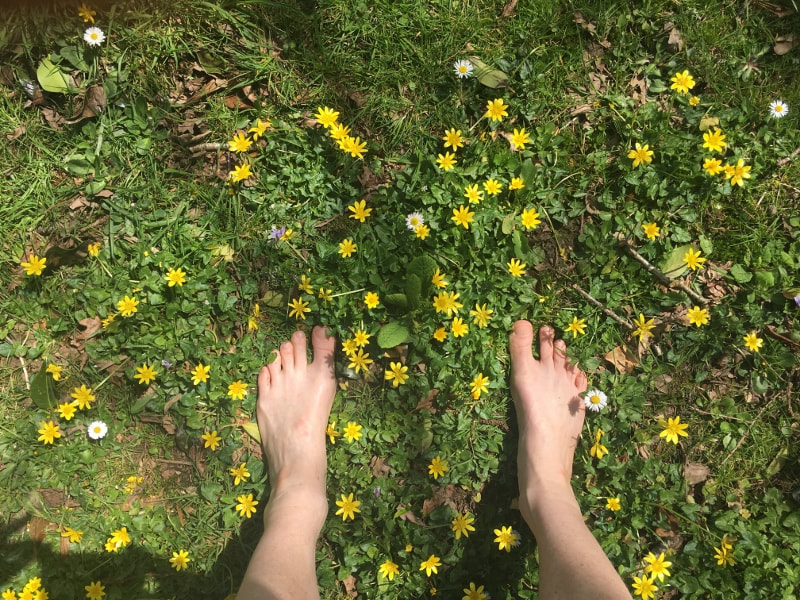
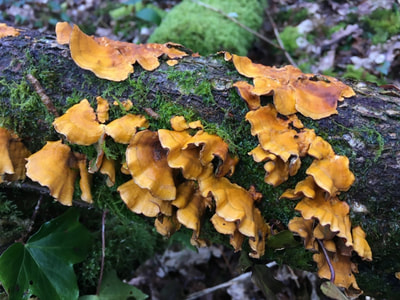
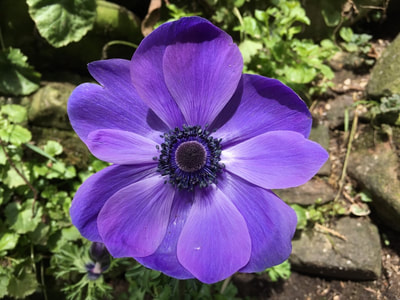
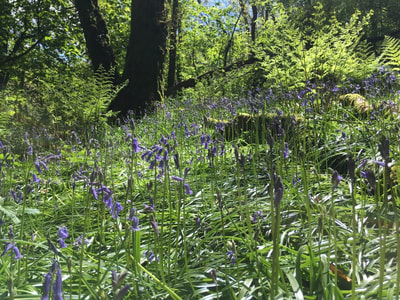
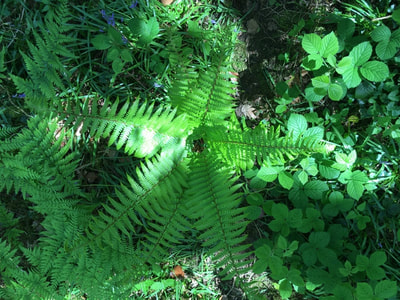
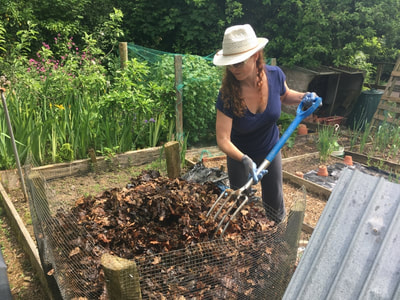
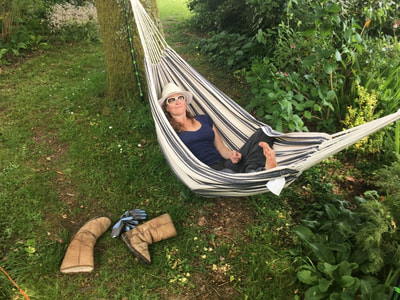
 RSS Feed
RSS Feed
